Extension agents equipped with skills ahead of farming season in Uganda
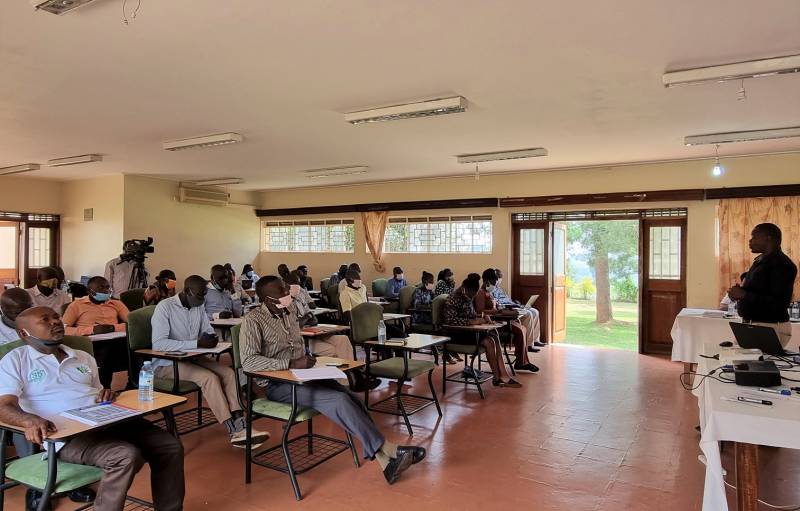
SAA-Uganda organized pre-season training for extension agents at Makerere University College of Agricultural And Environmental Sciences in Kampala, Uganda in February 2022.
The three-day Training of Trainers kicked off on 14th February 2022 and attracted extension agents, district coordinators, extension workers, zonal community-based facilitators, community-based facilitators, commodity association traders from SAA’s intervention areas. Partners, including agricultural and life insurance companies, academia, public and private sector players attended.
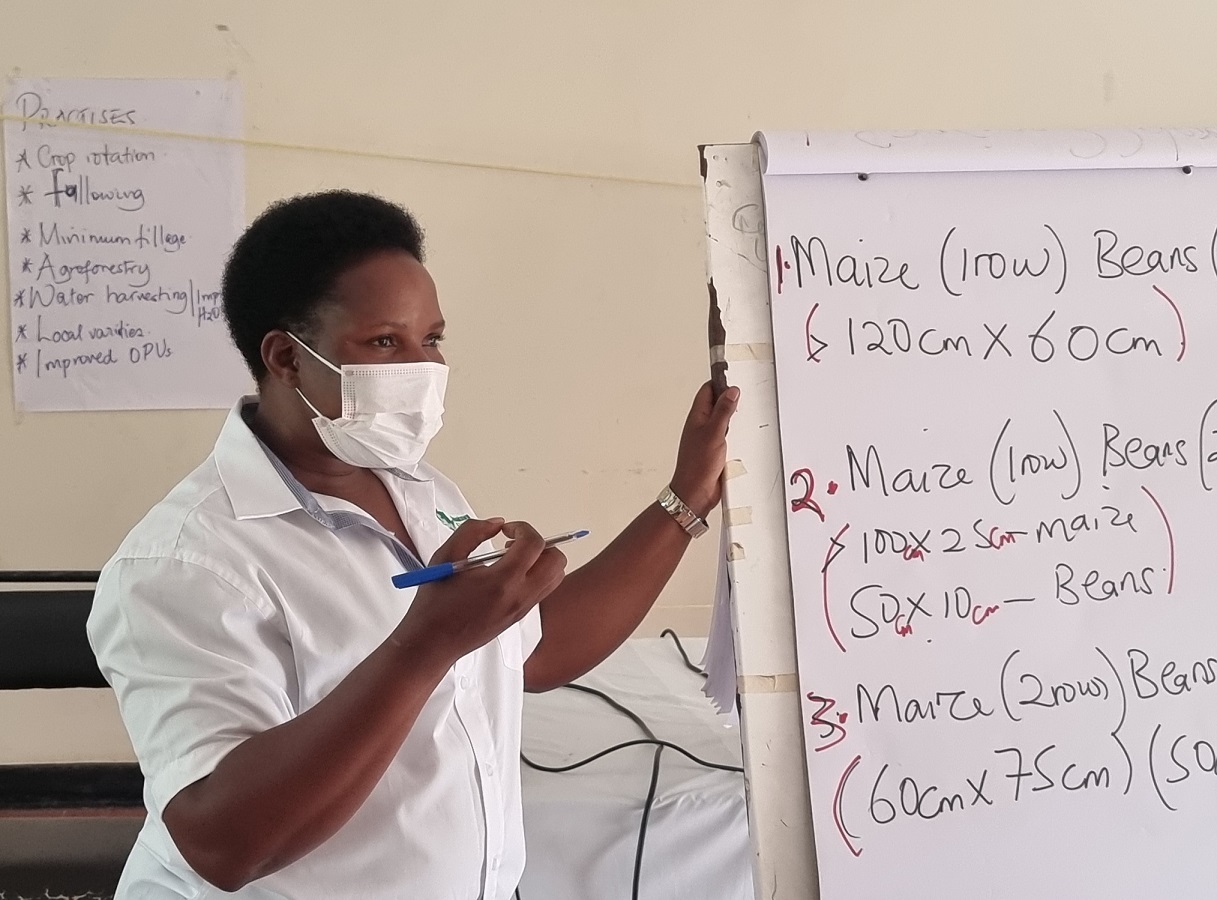
The training run under the theme “Building Sustainable and Resilient Food Systems for Food, Nutrition, And Income Security among Smallholder Farmer Households in Uganda” and was aimed at equipping extension agents with the skills required to implement SAA’s strategic plan under its three pillars namely: regenerative agriculture, nutrition-sensitive agriculture, and market-oriented agriculture.
Dr. Peter Ebanyat, a senior lecturer at the Department of Crop Production, College of Agricultural and Environmental Sciences, Makerere University, urged participants to adopt regenerative agriculture saying it is remedial to current and emerging climate change, soil degradation, and other issues.
“Plan area-specific interventions because the soil composition, weather, and other environmental conditions are unique with each area,” he added. He, however, called for patience saying the adoption is a gradual but worthwhile endeavor.
The training featured theoretical sessions that focused on explaining concepts, principles, and the appropriate practices under the three respective pillars.
The practical sessions were characterized by demonstrations on generic plot layout, land preparation, bunding, basin-making, mulching, planting manure/fertilizer application, safe use of agrochemicals, and farm mechanization and other practices included operating motorized backpack sprayer tillers, weeders, and small-scale irrigation for horticultural crops
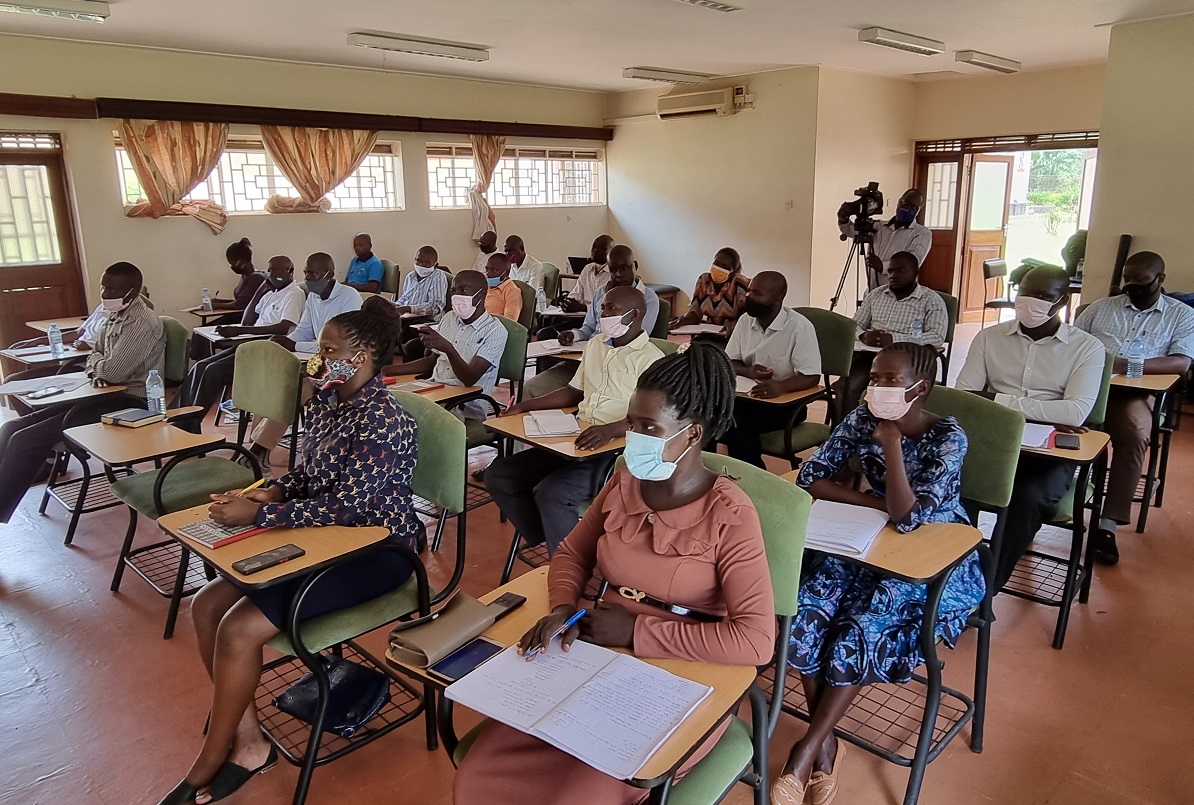
Discussions comprised topics such as farmer learning platforms, concepts in the new strategic plan, reasons to adopt regenerative, nutrition-sensitive, and market-oriented agriculture. The methodology of implementing each pillar, regenerative soil and water conservation, and plant nutrition were also discussed.
As a way forward, participants generate work plans for their respective areas for the next quarter and performance indicators upon which their assessment/output will be made.
In his concluding remarks, the Deputy Country Director of Sasakawa Africa Association in Uganda, Mr. Joseph Bbemba urged participants to adopt best practices and technologies to satisfy the increasing and diversifying demands of a growing population.
“We need to plan; the reality is that the population is projected to be 2.4 billion in a few years but our production systems have not changed,” he said. He awarded the certificates to extension agents who have excelled at their work.
Projections show that feeding a world population of 9.1 billion people in 2050 will require raising overall food production by 70% between 2005 and 2050.
SAA Publications
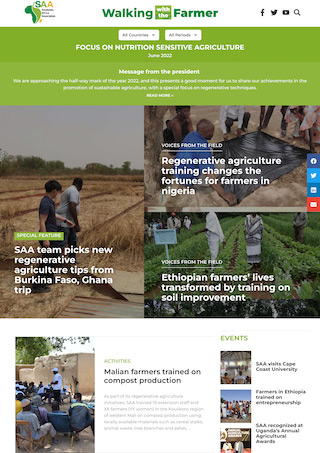
E-newsletter
"Walking with the Farmer"
SAA publishes a bimonthly e-newsletter reporting on SAA activities.
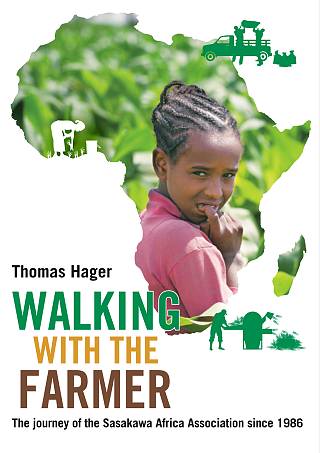
SAA history book
"Walking with the Farmer: The journey of the Sasakawa Africa Assoication since 1986"
This book chronicles the history of SAA from its inception to the present.
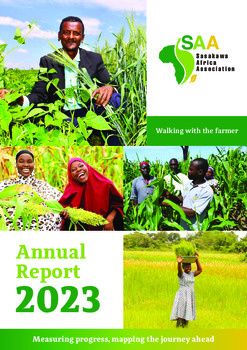
Annual Report
Annual Report FY2023
Annual Report FY2023 is available here.




